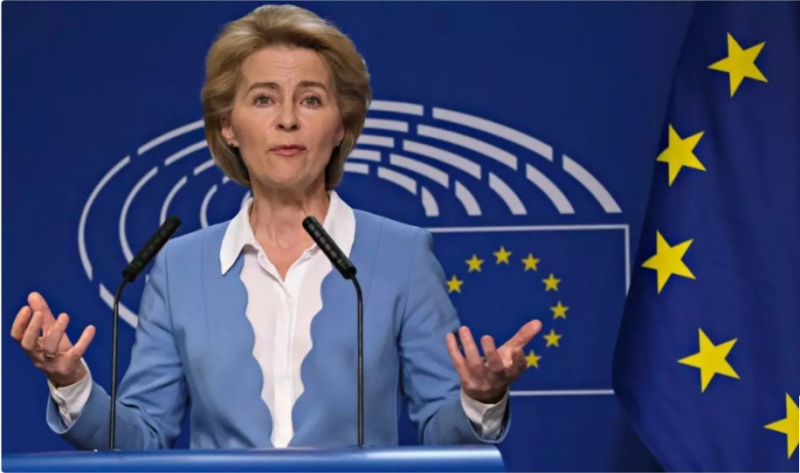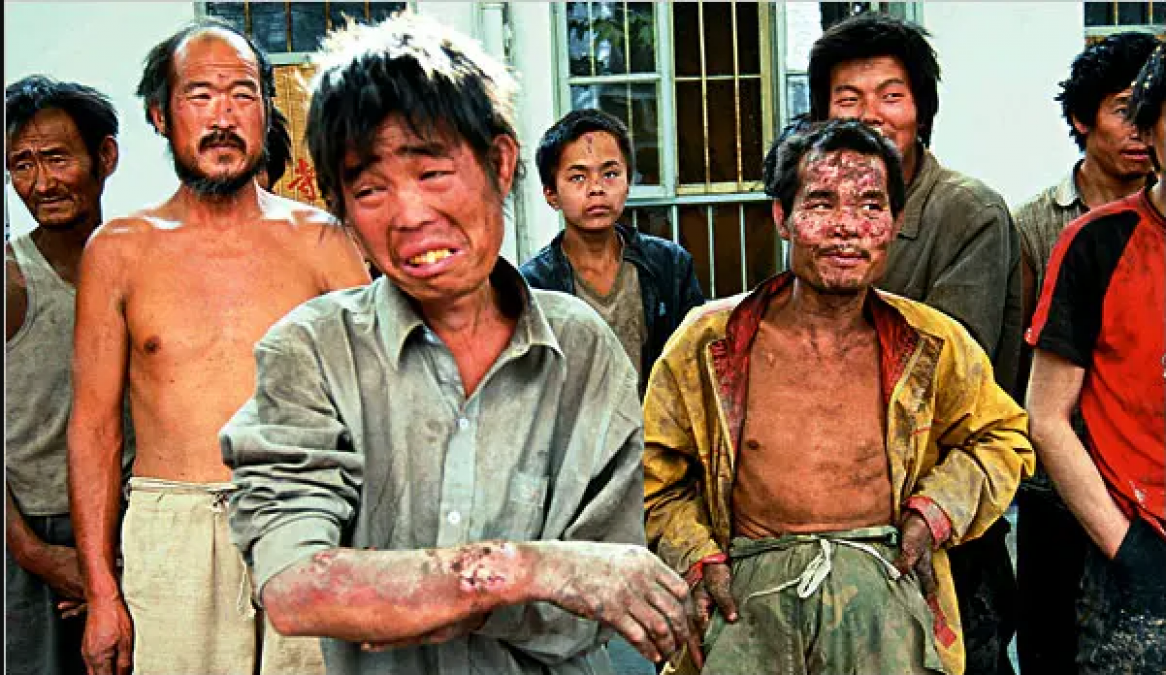
EU: The European Commission has proposed a ban on the sale of goods made using forced labor in the single market, a move that could worsen already strained trade relations with China.
But because of concerns about breaking WTO rules and directly targeting Beijing, Brussels' proposal to block such goods will be very different from the United States' proposal next week.
According to officials involved in the plan, the EU ban will apply to goods manufactured both inside and outside the bloc and will not be location-specific.
Washington, on the other hand, has outlawed all products from Xinjiang, a region in western China, unless importers can certify that the products did not involve forced labor. Businesses claim that it is nearly impossible to meet that standard.
Technocrats in Brussels emphasize that there is no single target, citing forced labor throughout the European Union and the rest of the world.
However, the EU's actions will aim to address the supply and goods problem coming from Xinjiang, where Beijing is accused of establishing a network of forced labour.
Officials claim that their proposed risk-based model, which flags products from sectors or industries that are thought to engage in such practices, will inevitably raise concerns about Chinese-made goods.
Given the risk, it is clear that Xinjiang will play a special role, according to a senior EU official involved in the drafting.
“Therefore, it would be very strange if the competent authorities would not take this as one of the flashpoints… If they see that an economic operator is importing goods from Xinjiang, it should definitely be on their watch list. ”, said the author.

Beijing has consistently denied claims of human rights violations in the region, with the foreign ministry saying that "forced labor has never happened in Xinjiang."
The European Parliament's demand for an outright import ban on all products made with forced labor, including a straight, US-style ban on products made in Xinjiang, is more stringent than the Commission's proposal.
However, officials believe that banning the sale of all goods produced with suspected forced labor rather than just imported goods would clear the EU market of tainted products without breaking international trade laws.
This is why, according to one official, "we couldn't take the US approach, which basically targets only imports and actually targets imports from one country."
The 27 EU member states would be required under the proposal to establish and finance "competent authorities" to confiscate goods suspected of using forced labour.
These products may be differentiated as a result of searches carried out by external parties, such as non-governmental organizations or other companies within or outside Europe, or on public databases of the Central European Union that provide users with goods and areas that forcibly labor can be used.
The EU will not identify entities found in specific cases, but the database will remain open to the public.
After a doubt is raised, the proposal states that there will be a preliminary investigation, followed by a more thorough evaluation that may include inspections of facilities in third countries.
Local government bodies now have to decide whether the products should be taken off the market or not. Officials said the goods would be confiscated immediately, and customs officials would be "immediately informed of the decision" and instructed to "stop these products at the border and suspend their circulation".
For example, the finished solar panels themselves will be banned, even if those that have already been sold to the end consumer will not be confiscated if it is discovered that they contain polysilicon linked to forced labor, in Xinjiang. There is a rumor problem that worries Western policymakers.

According to an EU source, "I don't think we can start traveling to the EU and climb on the roofs and remove the solar panels."
The European authority can draw conclusions based on the evidence available, even if a government or business does not allow the inspection.
He continued, "They don't need to have a smoking gun, just enough information and evidence to see if they can confidently say, 'Okay, this product contains forced labor and I need to stop it.' "
The proposal does not call for additional sanctions against businesses operating on either side of the business, nor does it include a corporate blacklist.
The Commission believes that the reputational risk associated with modern slavery and the financial cost of confiscation and removal of products from European store shelves would serve as a sufficient deterrent.
Joerg Wuttke, president of the EU Chamber of Commerce in China, said that it will nevertheless put additional pressure on EU companies doing business in Xinjiang, where scrutiny has already increased as a result of a recent UN report on the region's human rights situation.
Despite conducting exhaustive due diligence across their entire supply networks, European businesses operating in Xinjiang are unable to conduct independent, third-party audits of their operations, according to Wuttke. Only then can they be certified as fully compliant with international law.
They will come under increasing pressure to move their operations out of the area unless this is addressed.
It might be difficult to persuade European lawmakers—particularly those on the left—that the plan is comprehensive enough.
"I have been advocating for a similar ban in the EU as there is in the US on goods produced through forced labour. Therefore, it is a huge accomplishment that the commission has finally proposed a tool, according to Anna Cavazzini, a member of the Green Party in the European Parliament who has sponsored numerous resolutions on the subject.
The commission's proposal is a significant first step, but there seems to be room for further development.
Next week, just before President Ursula von der Leyen delivers her annual State of the Union address, the commission intended to unveil its proposal. To the surprise of many, including her own officials, she announced the creation of such a ban in the speech from the previous year.
This sparked an internal conflict among EU departments determined to avoid being tasked with creating a tool they were aware would be challenging politically and administratively.
In order for the file to be shared by the directorates in charge of the internal market and external trade, a compromise was reached by including products made both inside and outside the EU. Additionally, it wouldn't be overtly critical of China.
The authors of the proposal claimed to have "looked attentively" at the UN report from last week, which accused China of "serious human rights violations" in Xinjiang, including forced labour.
However, they claimed that rather than prompting a change in strategy, the report merely "corroborated" information they were already dealing with.
The document will serve as the basis for what are anticipated to be difficult negotiations with the European Council and the European Parliament, which are made up of representatives and diplomats from member states. In a lengthy legislative process that could take years, each body will internally negotiate its own text before engaging in "trilogue" discussions with the commission and each other.
Beijing, which this week spoke out against what it deemed to be "protectionist" measures being developed in Europe, might also respond.
The EU's director general for trade, Sabine Weyand, stated this week that they were "close to concluding" an anti-coercion tool to stop economic bullying. According to her, it will further laws addressing foreign subsidies, market access for procurement, and foreign investment screening that are thought to be directed at China.
Wang Hongjian, interim chargé d'affaires and the highest ranking Chinese diplomat in the EU, cautioned that the EU could not expect China to cooperate on issues like climate change if it was confronting it elsewhere.
Green cooperation cannot be cultivated in a vacuum, said Wang on Wednesday in Brussels.
In the meantime, proponents of human rights hope that the commission's proposal will be strengthened during negotiations to avoid the EU turning into a "dumping ground" for goods made with forced labour, including those from China.
According to senior EU adviser at Anti-Slavery International Helene de Rengerve, "the EU has a real opportunity to draught a trailblazing policy."
"We hope they will actually try to end forced labour, not just the products made through it, and walk the walk."
Europe "losing" the narrative war against China and Russia
‘All of Us Are Dead’ star Lomon & Shin Ye Eun to star as leads in new thriller drama
OPEC and its allies agree to reduce crude oil production for Oct by 101,000 bpd